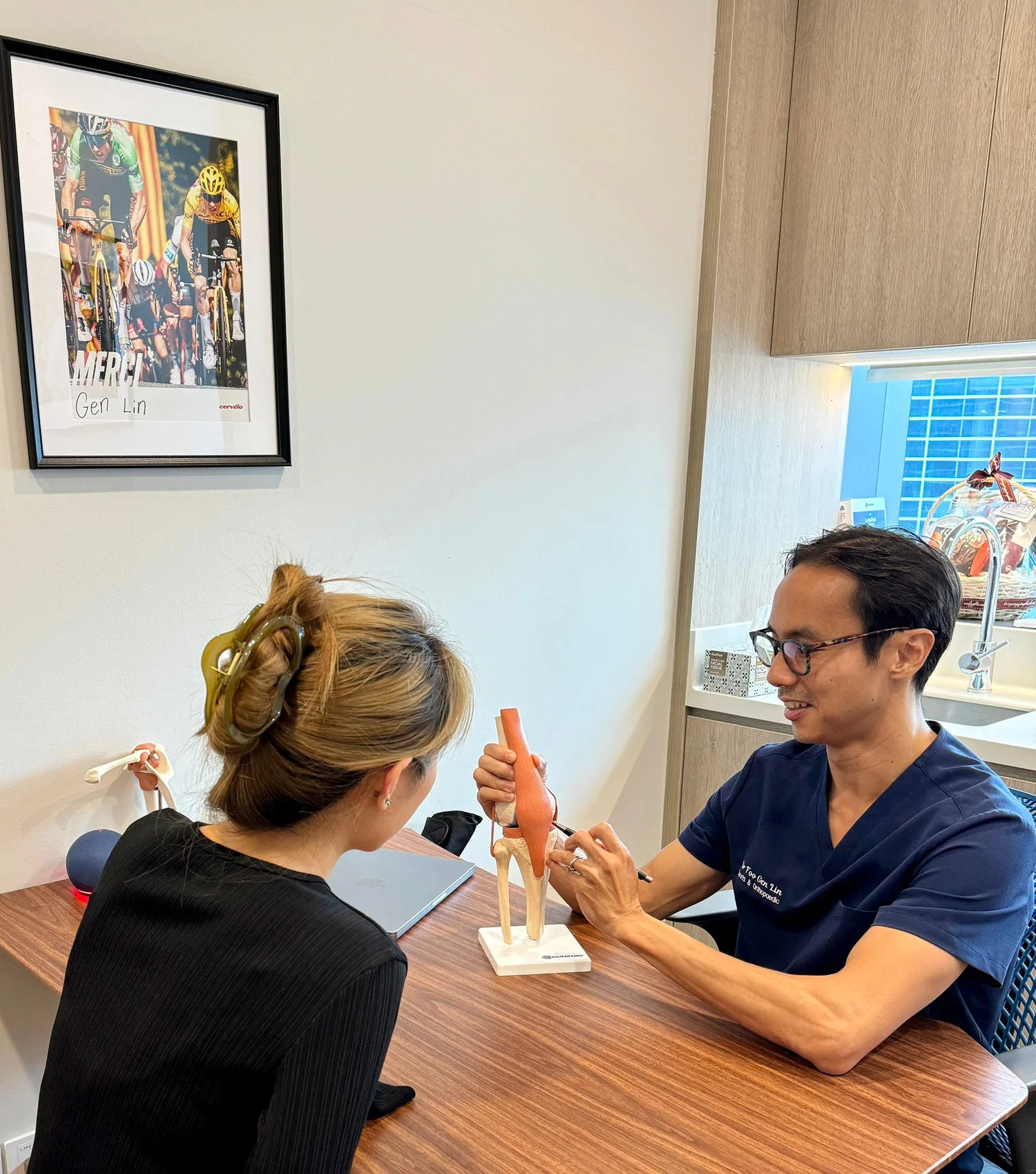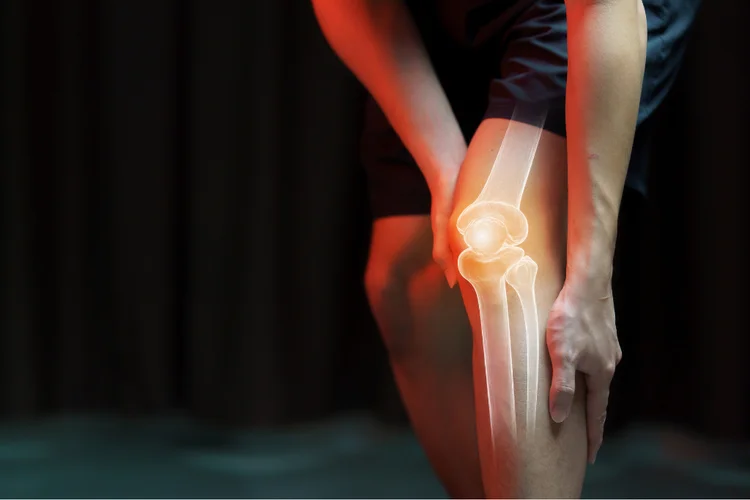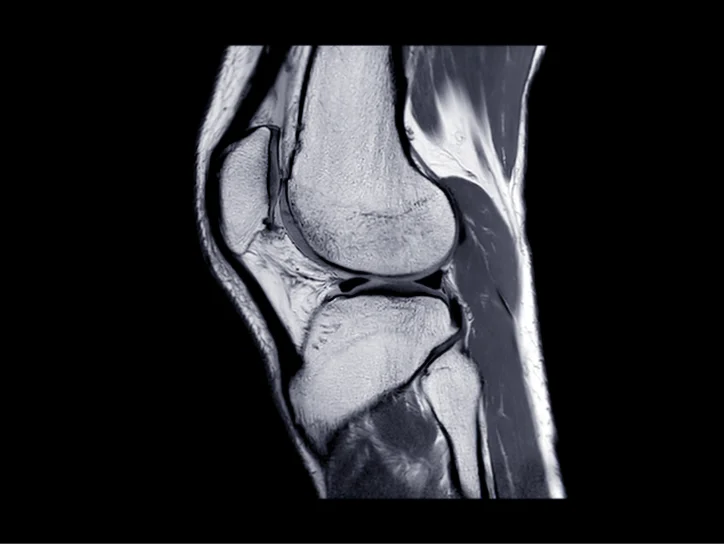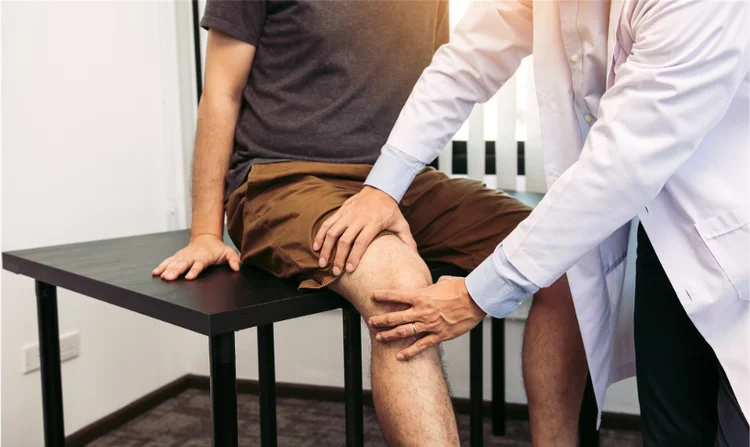Knee Specialist Singapore: Knee Pain Doctor
Information reviewed by: Dr. Foo Gen Lin | Last updated: Jan 13, 2026
Is persistent knee pain limiting your daily activities? Dr Foo provides comprehensive assessment and personalised care to address the root cause and help restore your mobility.
MBBS (University of London) | MMed (Ortho) | FRCSEd (Ortho) | FAMS (Ortho)


Knee Conditions We Specialise In

Common Causes of Knee Pain
Knee pain can arise from various conditions, including:
- Ligament Injuries – Tears to the anterior cruciate ligament (ACL) or medial collateral ligament (MCL), often caused during sports activities.
- Meniscus Tears – A common injury to the cartilage that cushions and stabilises the knee joint, often caused by twisting motions or excessive joint loading.
- Patellar Tendinitis – Inflammation of the tendon connecting the kneecap to the shinbone, commonly seen in athletes.
- Bursitis – Inflammation of fluid-filled sacs around the knee that cushion the joint.
- Arthritis of the Knee – Conditions like osteoarthritis, rheumatoid arthritis, gout, post-traumatic arthritis, and psoriatic arthritis, can cause joint pain, stiffness, and inflammation. These may result from wear and tear, autoimmune responses, injury, or metabolic disorders.
Symptoms of Knee Pain
Knee pain can manifest in various ways, depending on the underlying cause. Common symptoms include:

- Pain and Tenderness – Discomfort in the knee that worsens with movement, pressure, or activity. The intensity may vary from sharp to dull and can be intermittent or constant.
- Swelling and Warmth – Inflammation around the joint, sometimes accompanied by redness.
- Stiffness and Limited Motion – Difficulty bending or straightening the knee fully, often leading to restricted mobility.
- Instability or Weakness – A sensation of the knee "giving way" or feeling unstable during movement.
- Locking or Clicking – Audible sounds or the knee getting "stuck" in certain positions.
How Are Knee Injuries or Conditions Diagnosed?
Diagnosis of knee injuries and conditions at Apex Sports Clinic involves a structured assessment process, including:

- Medical History Review – Evaluating symptoms, lifestyle, medical history, and recent injuries or activities.
- Physical Examination – Assessing the knee's range of motion, stability, strength, alignment, and checking for swelling, tenderness, or deformities.
- Imaging Tests – X-rays, MRI, and ultrasound are used to assess the structure and condition of the knee, providing insights for diagnosis and treatment planning.
- Laboratory Tests – Blood tests may be used to rule out inflammatory or autoimmune conditions, while joint fluid analysis helps detect infections or gout.
- Specialised Diagnostic Procedures – Arthroscopy is a minimally invasive procedure that uses a camera to examine the inside of the knee joint, diagnose issues, and, if needed, perform repairs.
Knee Pain Treatment
The approach to knee pain treatment varies based on the underlying cause, severity, and individual patient needs. Options include:

- Non-Surgical Methods – Physiotherapy, anti-inflammatory medications, and joint injections to alleviate pain and improve function.
- Minimally Invasive Procedures – Arthroscopy to repair or remove damaged tissue and Platelet-Rich Plasma (PRP) Therapy to enhance healing.
- Surgical Solutions – Ligament reconstruction or knee replacement for more severe cases.
- Rehabilitation – Recovery plans including targeted exercises, physical therapy, and gradual activity progression to restore strength, mobility, and joint stability.
When to See a Doctor or Specialist for Knee Pain?
It is advisable to consult a knee doctor or specialist if you experience:
- Persistent or worsening pain that limits daily activities.
- Swelling, redness, or warmth around the knee.
- Difficulty walking, bending, or straightening the knee.
- A recent injury accompanied by instability or locking of the joint.
Cost of Knee Specialist Services in Singapore
| Knee Specialist Services | Estimated Cost (SGD)* |
|---|---|
| Consultation & Assessment | |
| Initial Consultation | From $200 |
| Follow-Up Consultation | From $150 |
| Second Opinion Consultation | From $200 |
| Diagnostic Services | |
| X-Ray | From $100 |
| MRI Scan | From $1,000 |
| Ultrasound Imaging | From $100 |
| Gait Analysis | From $200 per session |
| Non-Surgical Treatments | |
| Physiotherapy | From $200 per session |
| Sports Physiotherapy | From $200 per session |
| Shockwave Therapy | From $100 per session |
| Casting / Bracing | From $300 |
| Injection-Based Treatments | |
| Bursa Injection | From $250 per injection |
| Cortisone Injection | From $250 per injection |
| Hyaluronic Acid Injection | From $1,000 per injection |
| Joint Aspiration (Arthrocentesis) | From $250 per injection |
| Platelet-Rich Plasma (PRP) Treatment | From $1,000 per injection |
| Ultrasound-Guidance for Injections (in addition to cost of injection) | From $150 |
| Minimally Invasive Surgical Procedure | |
| ACL Reconstruction | From $10,000 |
| Debridement (Chondral / Impingement / Osteophytes / Soft Tissue) | From $8,000 |
| Knee Meniscus Repair / Meniscectomy | From $8,000 |
| Loose Body Removal | From $6,000 |
| Osteochondral Lesion Treatment | From $10,000 |
| Traditional / Open Surgical Procedures | |
| Fracture Fixation (ORIF) | From $6,000 |
| Knee Meniscus Transplant | From $15,000 |
| Knee Replacement Surgery (Partial / Total) | From $10,000 |
| Ligament Reconstruction – MCL / LCL / PCL | From $10,000 |
| Patella Realignment / Stabilisation Surgery | From $10,000 |
| Tendon Repair – Patellar / Quadriceps | From $8,000 |
*Prices listed above are estimates and may vary depending on the complexity of the condition, type
of procedure, and other clinical considerations.
For treatments or services not listed above, please contact
us to enquire further.
Finding the Best Knee Specialist in Singapore
Choosing the right knee specialist for you depends on the nature of your condition,
treatment
preferences, and recovery goals. There is no single approach that
works for everyone, as different people have different needs and health priorities.
Considerations that may help guide your choice include:
- Clinical Expertise – Some providers may have more experience in specific knee conditions, such as ligament injuries, cartilage wear, or patellofemoral disorders.
- Diagnostic Capabilities – Access to imaging tools like MRI, ultrasound, or X-rays can support timely and well-informed assessments.
- Treatment Approach – Some may emphasise physiotherapy and conservative care, while others may integrate surgical options more readily.
-
Rehabilitation Services – Coordinated post-treatment care, including
physiotherapy and exercise progression, can support longer-term recovery.
Ultimately, it comes down to personal comfort in choosing a specialist who shares your communication
style and recovery goals, which may contribute to a more positive care experience.
Every knee is different. Book a consultation with
our friendly and experienced doctors to discuss what might work best for your recovery.
How to Prevent Knee Injuries?
Preventing knee injuries is essential for maintaining joint health and mobility. Follow these strategies to reduce the risk:
- Strengthen Surrounding Muscles – Build strength in the quadriceps, hamstrings, and calves for better support.
- Stretch Regularly – Perform dynamic and static stretches before and after physical activity.
- Wear Appropriate Footwear – Use supportive, well-fitted shoes to minimise knee impact.
- Practice Good Form – Apply proper techniques during exercises, sports, or lifting to reduce strain.
- Maintain a Healthy Weight – Avoid excess pressure on knee joints from additional body weight.
- Avoid Overuse – Ensure rest and recovery between high-impact activities to prevent strain.
- Use Protective Gear – Wear pads or braces for contact sports or high-risk activities.
- Modify Activities – Opt for low-impact exercises, like swimming or cycling, to reduce stress on the knees.
Knee pain can stem from many causes, from sports injuries to wear and tear. A thorough evaluation will help identify your issue so we can recommend the right treatment for you.
Where Can I Find a Knee Specialist Near Me?
Apex Novena
admin@apexsportsclinic.sg
101 Irrawaddy Rd, #18-12 Royal Square Medical Centre, Singapore 329565
Nearest MRT: NS20 Novena (3-min walk)
Wheelchair Accessible
Apex East Coast
admin@apexsportsclinic.sg
112 East Coast Rd, #03-03/04 i12 Katong, Singapore 428802
Nearest MRT: TE26 Marine Parade (7-min walk)
Wheelchair Accessible
Why Do Patients Choose Apex Sports Clinic?
Sports Doctor in Singapore: Personalised & Affordable Care
Progressive Treatment Philosophy
We prioritise personalised, non-invasive solutions, progressing to specialised treatments, including surgery, only when needed for more effective and targeted care.
Holistic Patient-Centred Care
From diagnosis to rehabilitation, we provide comprehensive and seamless care for a wide range of orthopaedic conditions.
Specialist in Sports Orthopaedics & Injury Management
We combine expert injury management with a proactive approach to maintaining your body's strength and function, so you can recover fully and perform at your peak.
Patient Journey
1 . Schedule Your Appointment

2 . Expert Diagnosis & Consultation

3 . Customised Treatment Plan

Schedule an Appointment

Our Insurance Partners








Frequently Asked Questions (FAQs)
Descending stairs places extra strain on the knee joint, particularly on the patellar tendon and quadriceps. Conditions such as patellar tendinitis, cartilage damage, or arthritis can make this movement painful.
Recent advancements in knee pain treatment include Platelet-Rich Plasma (PRP) therapy, stem cell therapy, and minimally invasive surgical procedures designed to promote healing and restore function.
Keeping your knee slightly bent and supported can help reduce strain and minimise stress on the joint. Avoid keeping the knee fully straight or overly bent for long periods, as this may increase discomfort or restrict circulation; a neutral, supported position is more comfortable for recovery.
For knee injuries, consult an orthopaedic doctor or surgeon for a detailed evaluation and treatment. With specialised expertise in musculoskeletal care, they are equipped to address knee-related conditions and injuries.
Manage pain by reducing strain with proper footwear, using handrails for support, and strengthening surrounding muscles. If the pain persists, it is best to consult a doctor or knee specialist for proper diagnosis and treatment.
Rest the joint, apply ice to reduce swelling, and elevate the knee to improve circulation. Avoid activities that worsen the pain or cause further injury. If the pain persists, worsens, or is accompanied by swelling or instability, consult a doctor or specialist for evaluation and treatment.
Sleeping with a pillow under or between your knees helps align the joints and reduce pressure on the affected area, alleviating discomfort. This position minimises unnecessary strain on the knee while supporting proper posture during rest, promoting better sleep and recovery.
An orthopaedic doctor will review your symptoms and medical history, examine your knee's movement and stability, and may order X-rays, MRIs, or ultrasounds. Based on the results, they will recommend treatments such as physiotherapy, medication, joint injections, or surgery if necessary.
A knee doctor is commonly called an orthopaedic specialist or an orthopaedic surgeon, who specialise in diagnosing and treating musculoskeletal conditions, including knee injuries and disorders.
An orthopaedic specialist or a rheumatologist is best for treating knee arthritis, depending on whether the condition is mechanical (e.g., osteoarthritis) or autoimmune (e.g., rheumatoid arthritis). Both can provide effective management and tailored care.
Treatment may include rest, ice application, physiotherapy, and stretching to improve flexibility and strength. Persistent pain may require evaluation by a knee specialist to rule out underlying conditions.
A knee specialist is also referred to as an orthopaedic surgeon or sports medicine doctor.
Common causes include ligament injuries from trauma or sports, meniscus tears due to twisting motions, arthritis from joint degeneration or inflammation, and patellar tendinitis from overuse or repetitive stress.
Concerning signs include severe swelling, visible joint deformity, difficulty bearing weight, redness and warmth around the joint, or sudden, intense pain following an injury.
To address knee pain quickly, rest the joint, apply ice, and take anti-inflammatory medications. If the pain persists or is severe, consult a doctor or specialist for an accurate diagnosis and targeted treatment.
Resting is recommended initially to reduce inflammation. Gradual walking with minimal strain may help improve mobility, but avoid overexertion.
Pain behind the knee when straightening may result from hamstring tendinitis, a Baker's cyst, or ligament injuries. It is advisable to consult a specialist if the pain persists.
Pain while descending stairs often indicates overuse or injury to the knee structures, such as the meniscus, ligaments, or tendons, which are under higher tension during this motion.
An orthopaedic doctor or a sports medicine specialist is the most suitable professional for knee pain evaluation and treatment.
X-rays are effective for detecting bone-related issues like fractures or arthritis, while MRIs are better for evaluating soft tissue injuries such as ligament tears or cartilage damage. Your doctor will recommend the appropriate imaging based on their initial assessment of your condition.
If you hurt your knee, start by consulting a general practitioner (GP) for an initial assessment, especially for mild or moderate pain. For persistent symptoms, significant swelling, or severe injuries, an orthopaedic doctor or knee specialist is better equipped to provide targeted and specialised care.
If you experience knee pain, use rest, ice, and compression to reduce swelling and alleviate discomfort. If the pain persists, consult a doctor or specialist for further evaluation.
Warm up before running, strengthen supporting muscles, use proper footwear, and avoid overtraining. Gradually increase running intensity and incorporate cross-training to reduce strain.
To prevent knee tendonitis, focus on strengthening and stretching the quadriceps and hamstrings, maintaining proper form during activities, avoiding overuse, and wearing appropriate footwear.
An orthopaedic specialist, especially one experienced in sports injuries and knee conditions, is ideal to consult for diagnosis and treatment of knee pain.
Inner knee pain can indicate conditions such as medial meniscus tears or medial collateral ligament (MCL) injuries. Persistent pain may necessitate proper evaluation and diagnosis by a knee specialist.
Wrapping your knee with a compression bandage can reduce swelling, provide support, and improve stability by limiting movement. Ensure it is not too tight to avoid restricting blood flow. Compression works best alongside rest, ice, and elevation, especially for acute injuries.

